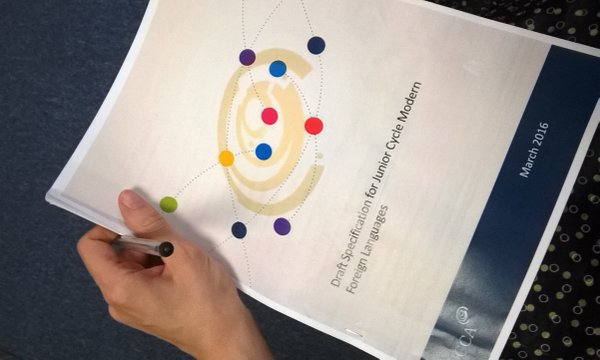
NCCA Assessment Guidelines For MFL
NCCA Assessment Guidelines For MFL
Introduction to Junior Cycle… NCCA Assessment Guidelines For MFL
Junior cycle education places students at the centre of the educational experience. This enables them to actively participate in their communities and in society. It shows them to be resourceful and confident learners in all aspects and stages of their lives. Junior cycle is inclusive of all students and contributes to equality of opportunity, participation and outcome for all.
The junior cycle allows students make a greater connection with learning by focusing on the quality of learning that takes place. This offers them experiences that are engaging and enjoyable for them, and relevant to their lives. These experiences are of a high quality, contribute directly to the physical, mental and social wellbeing of learners, and where possible, provide opportunities for them to develop their abilities and talents in the areas of creativity, innovation and enterprise. The learner’s junior cycle programme builds on their learning to date and actively supports their progress in learning. In addition, this supports them in developing the learning skills that will assist them in meeting the challenges of life beyond school.
